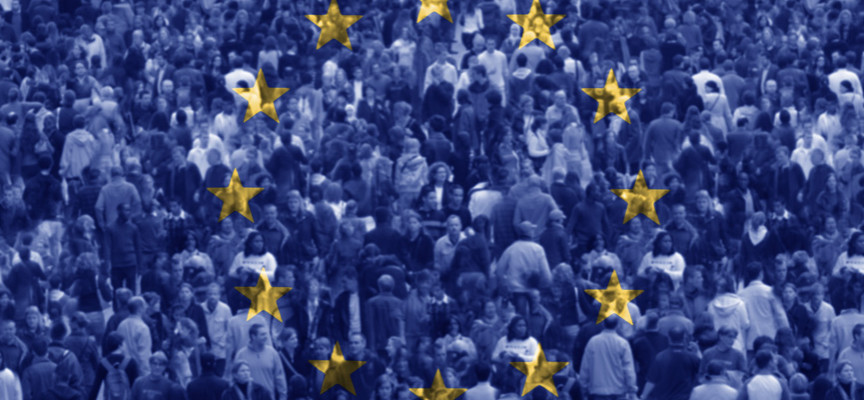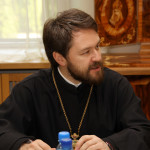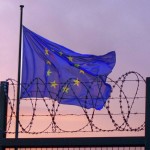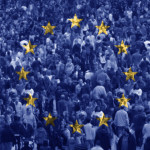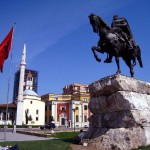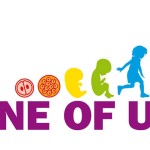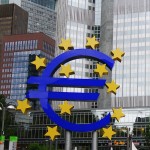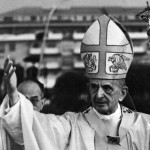Every debate about the perspective of European unity should be considered within the dialectical poles of monist or polyarchical forms of the distribution of power. Not surprisingly, Benedict XVI, aiming to give substance to the “institutional path of charity” in the supranational arena, refers to the principles of solidarity, subsidiarity and polyarchy (Caritas in Veritate, 57, 67). These elements are peculiar to political authority, and make it capable of global governance and of conforming to the imperative of respect for the dignity of every individual, involved – as Pope Francis notes – “in a network of communitarian relationships” (Lumen fidei, 40).
We know how Europe’s building up has progressed by adopting a functionalist methodology, following the idea that inter-state cooperation on single policy-areas would have favored a greater union. Since then, this approach has turned into a neo-functionalism in the grip of the lobbies; today it seems not to be enough, both because its fundamental premise (the unity and homogeneity of the markets as a way to unify the peoples) is undermined, and on account of the re-surfaced request of a political unity, even in the form of a “Europe of nations, or peoples”, which had once seemed to have been defeated by the very historical evolution of the EU.
European Founding Fathers (Adenauer, Schuman, De Gasperi and Monnet), “ordoliberal” theorists and social market economy interpreters implemented a great functionalist policy to cement the cooperative ability of a group of countries around the same resources, the control of which for centuries had been the source of many conflicts. That functionalism responded with a compromise, rewarding to each country, but not maximizing at the expense of the others, to the “prisoner’s dilemma of the 20th century”, where the prisoners were national spirits, humiliated by totalitarianism and therefore potentially vindictive. In addition, it was a right application of “trial-and-error” form of liberalism, since it managed to survive the sinking of the European Defence Community (1954), a project, however, that was part of the plan to create joint management of the typical functions of national state. In fact, the European integration “aimed to create further limitations to the idea of the democratic nation-state, due to the presence of non-elective institutions” (Jan W. Müller), thus placing itself in a state of perennially searching for a principle of justification to legitimize it in the eyes of the people.
Actually, the building-up of Europe began to creak when the 2004 enlargement towards recent-democratic countries (as happened before with Spain, Portugal and Greece) was pursued by the diffusion of standards and rules, rather than values, and of techniques, rather than ideals, in this way, contributing to Brussels’ claims of despotic sovereignty. In the same way, the clumsy project – which later shipwrecked in 2009 – of a European Constitution superimposed upon the historical, religious and political cultures of the Continent, finally revealed the futility of such an inauthentic interpretation of functionalism. It caused particularistic, populist and xenophobic oppositions and was further exacerbated by the Crisis that is still heavily affecting us today.
In front of such a historical impasse, we can adopt a stratified approach to put aside the claims of supremacy nurtured by Politics. As Luigi Sturzo suggested, politics must to be content to be counted as sphere of production of a particular share of the common good (public order and peace), among many other spheres that are indifferent to politics or not subordinated to it. This does not mean to “limit” Politics – something attempted several times in the Modern Age – but rather implies that its meanings and functions should be redefined. It is possible to rediscover, within European political thought itself, some cultural trends that dissent from that technocratical uniformity of which Brussels is the last agonizing manifestation. However, we need to rediscover it not in the name of mere values or interests, but rather in the name of an adherence to reality, which also means an adherence to the deeper truth of things. A renewed European realism, thus, based on empirical evidence of historical relations and political contingencies, because, as Robert Schuman said in his Declaration of 9th May 1950: “Europe will not be made all at once, or according to a single plan. It will be built through concrete achievements which first create a de facto solidarity”.
To do this, we must reject that Hobbesian interpretation seeing a political link as a mere pact of submission to the State by the citizens. In fact, despite all the formal statements in the name of subsidiarity contained in EU documents, the Crisis has shown the absolute self-referentiality of European politics, which imposes solutions, even drastically, regardless of popular consensus.
In the democratic age, the face of the consensus is found in the principle of representation of representation, especially in their indirect version. Thus, the solution may be an institutional reform that would give meaning and substance to the invocation of a European political union. Such a reform, interpreted in a subsidiary, polyarchical and relational key, will aim to reduce the “democratic deficit” that has been a part of the European project since its inception. Therefore, one might expect a redistribution of powers between the Commission and the European Parliament, dividing the latter into two popularly-elected chambers: one composed of the political representatives of every member State, the other with a technical, non-political, though not exclusive competence on economic and social matters. It could be expressive of transnational interest groups, enrolled in a special register. (We might add that this house should strengthen the skills and profile of the Economic and Social Council – which is currently only an advisory body – and ultimately replace). As far as the selection of representatives, this house could be elected in a single European electoral constituency, provided that it includes a fixed number (3?) of representatives from each State-member. At the same time, the “political” chamber should continue to be elected on a national-based constituency.
According to a relational perspective, the implications deriving from this reform should concern both the process of popular consultation and the accountability of the European political class, providing a media-platform to constantly connect the members of both houses with their voters, during both the electoral campaign and their mandate. All this can be pursued by resorting to open-source tools for monitoring parliamentary activity, which grant immediate feedback to the policies implemented. These tools of participatory democracy can include wider and wider layers of citizens in political activity, distancing them from being enmeshed by any populist movement, and improving their loyalty to an international perspective more than to a narrow-minded focus on mere domestic issues.
Yet, looking beyond the usual reverence for the mantra of technological innovation, and any futuristic rhetoric, the same massive spread of peer-to-peer instruments of web-democracy (i.e. social networks, forums or applications for the aggregation and the study of open data) should be considered in the light of the danger of the establishment of a “dictatorship of the active” that would simply replace the (supposed) corrupt and unqualified élite with another élite: namely, aggressive, organized and diligent minorities imposing themselves with no less coercion on the majority of citizens.
As the European political space does not seem sufficiently impenetrable when facing with a probable escalation of this kind, such a shift could start a trend of gradual marginalization of the moderates from the political debate. This could occur in a manner analogous to what happened at the hand of some avant-garde political groups that inspired the action of international and non-governmental organizations. These new populist élite are not so different from lobbies currently working at the margins of the European Parliament, which are often fostered by radical public opinion.
We have no more time: the constituency is required to be gradually diverted by the populist sirens and from their allure of transgression against the canons of political orthodoxy: rather, people has to be passionated about authentic democratic game. Democracy is centered, as pointed out by D. Acemoglu and J.A. Robinson, on the inexhaustible capacity for innovation which exists in the nature of these very same institutions, inasmuch as they embody the highest expression of popular sovereignty. Coherently with the call addressed by Pope Francis “to initiate processes rather than occupy spaces”, today the challenge of politics has to be played on the grounds of inclusion, whether you consider democracy in terms of liberty, or you consider it in terms of equality.
Nel corso dell’ultima campagna elettorale per il Parlamento europeo è emerso un elemento inedito, quale il timido strutturarsi di un’offerta politica in grado di trascendere i confini nazionali. I candidati alla presidenza della Commissione si sono rivolti direttamente ai diversi elettorati continentali, illustrando piattaforme programmatiche incentrate su problemi non immediatamente domestici.
A livello di cultura politica, tuttavia, non si può fare a meno di notare che, nel coacervo di proposte, tese alla ricerca del miglior ordine politico, sia mancata una riflessione approfondita in merito alla natura stessa dell’esperimento europeo. Riteniamo invece che questa consapevolezza sia ben presente all’interno della riflessione portata avanti dalla dottrina sociale della Chiesa, in grado di interpretare, sulla scorta di un magistero recente ma ormai consolidato, ogni fenomeno politico entro i poli dialettici delle forme monista e poliarchica di distribuzione del potere.
Se consideriamo l’opera dei padri del processo d’integrazione europea, possiamo trovare numerosi esempi che rendono ragione del concetto che Benedetto XVI ha voluto inserire in Caritas in veritate, sintetizzabile con l’espressione: “Via istituzionale della carità” (n. 7). Intendendo per tale via l’esperienza civile che il cristiano compie nel suo più intimo testimoniare i valori eterni del cristianesimo sul versante politico, economico e culturale, dal momento che “i cristiani sanno che Gesù ha fatto piena luce sulla realizzazione del vero bene comune dell’umanità”, come ricordava Giovanni Paolo II nel Messaggio per la giornata della pace del 2005.
È questo il profondo senso civile dell’amore che dalla Croce giunge a ciascun uomo e si fa storia mediante l’opera dell’uomo. Di uomini “liberi e forti” che intrecciano i loro talenti, le loro passioni, le loro competenze, ma anche le loro miserie, le loro fragilità. In breve, sulla scia di Sturzo e di Rosmini, di uomini “liberi e forti”, “ignoranti e fallibili”, “imperfetti” ma “perfettibili”, capaci di andare oltre i propri limiti, nella direzione delle loro ragionevoli aspettative, edificando istituzioni nelle quali quegli stessi uomini mostreranno, con la loro testimonianza, la “fecondità del bene”, contro la “sterilità del male”.
Una tale tensione è stata al centro del progetto europeo che fu di Adenauer, di De Gasperi e di Schuman. Quel progetto oggi vive una profonda crisi, compresso com’è tra spinte populiste, rigurgiti nazionalistici e fughe radicali. La struttura del modello poliarchico a livello europeo, fondato sul principio di sussidiarietà, può essere costituita dal rafforzamento e dalla riforma delle istituzioni esistenti, nonché dal tentativo di implementarne di nuove, in base al criterio antiperfettista, che suggerisce di fare il più possibile assegnamento sull’esperienza, agendo con le riforme.
Ora, sappiamo che nell’età democratica il volto principale del consenso è dato dagli istituti di rappresentanza, specie indiretta. La soluzione passa allora per una riforma istituzionale che possa dare senso e sostanza all’invocazione, altrimenti propagandistica, per un’Europa “politica”. Del resto, leggendo “in combinato disposto” il mandato di Benedetto XVI presente nella Caritas in veritate e rinforzato con veemenza dalla Evangelii gaudium (n. 205) di Francesco, occorre interpretare l’alta forma di carità che è la politica come “via istituzionale della carità”, attraverso cui osare tentativi di riforma in chiave sussidiaria, poliarchica e relazionale, miranti a ridurre quel “deficit democratico” che accompagna sin dai suoi esordi il progetto europeista.
Pertanto, si potrebbe prevedere una redistribuzione dei poteri tra Commissione e Parlamento europeo, con quest’ultimo strutturato in due Camere elettive, l’una formata dai rappresentanti politici dei singoli paesi membri, l’altra con competenza tecnica, e non politica, ristretta, ma non esclusiva, sulle materie economico-sociali, ed espressiva di gruppi di interesse transnazionali e iscritti ad un apposito registro. (Aggiungiamo che quest’organo andrebbe a rafforzare le competenze e il peso di un organo solo consultivo come il Consiglio economico e sociale, sostituendolo).
Dal punto di vista della selezione dei rappresentanti, quest’ultima camera potrebbe essere eletta in un collegio unico europeo, a patto di includere una quota fissa (tre?) rappresentanti per ogni Stato membro, mentre la camera politica dovrebbe seguitare ad essere eletta in collegi nazionali. Ovviamente per entrambe sarebbe prevista la consultazione popolare diretta.
Questo schema poliarchico consente di evitare la concentrazione di tutti i poteri in un unico supergoverno continentale, dotato di compiti vasti, discrezionali e indeterminati e permette di diversificare i criteri di formazione della volontà di tali istituzioni, in relazione alla loro missione. Ci sembra che sia questo il modello che emerge dalla Caritas in veritate, meditando sulla teoria politica di Luigi Sturzo, sull’esempio istituzionale di De Gasperi e sulla teoria economica dell’economia sociale di mercato, così come teorizzata da Eucken, Röpke, Müller Armack e Luigi Einaudi, con diverse, ma convergenti declinazioni.
La storia ci insegna che la pace è una precondizione necessaria per lo sviluppo, ma nel contempo, al pari della libertà, richiede l’impegno quotidiano di tutti affinché si promuovano, si edifichino e si difendano le istituzioni atte a favorire un’autentica esperienza di pace. Si tratta allora di disinnescare progressivamente le sirene populiste e radicaleggianti, evidenziando l’autentico gioco democratico imperniato, come ricordano D. Acemoglu e J. A. Robinson, sulla capacità inesauribile di innovazione delle stesse istituzioni, massima espressione dell’indirizzo popolare. In coerenza con l’invito di papa Francesco ad «avviare processi più che occupare spazi», la sfida della democrazia alla politica si gioca oggi sul terreno dell’inclusione, sia che si consideri la stessa democrazia sotto il profilo della libertà, sia che la si veda sotto quello dell’uguaglianza.
Flavio Felice, Maurizio Serio
Latest posts by Flavio Felice, Maurizio Serio (see all)
- To reduce the democratic deficit - 15 giugno 2014

